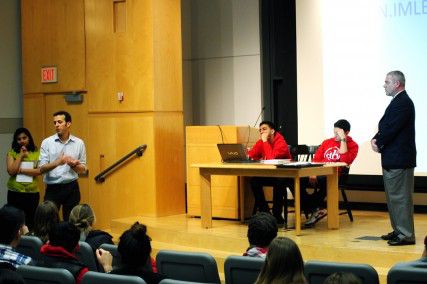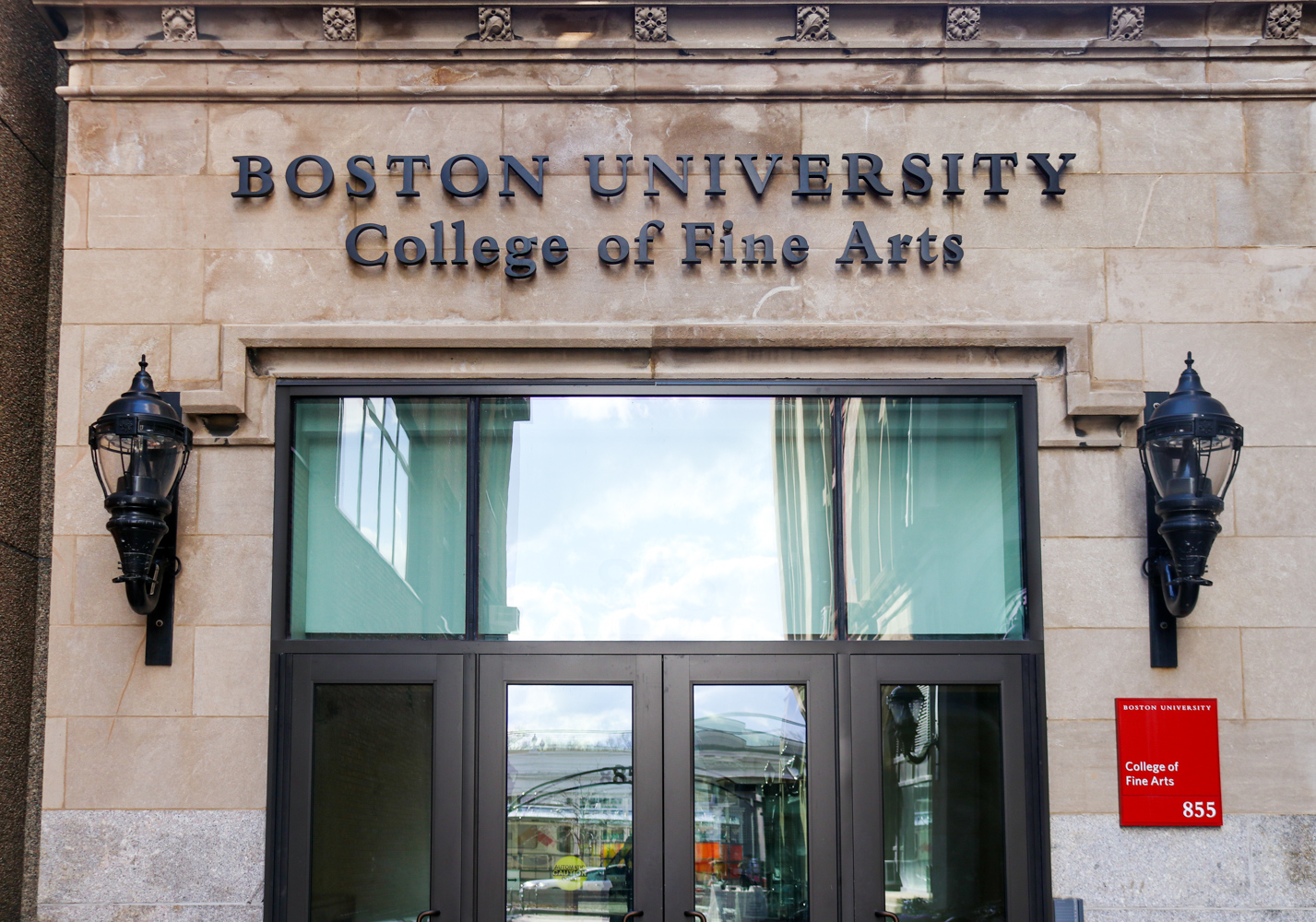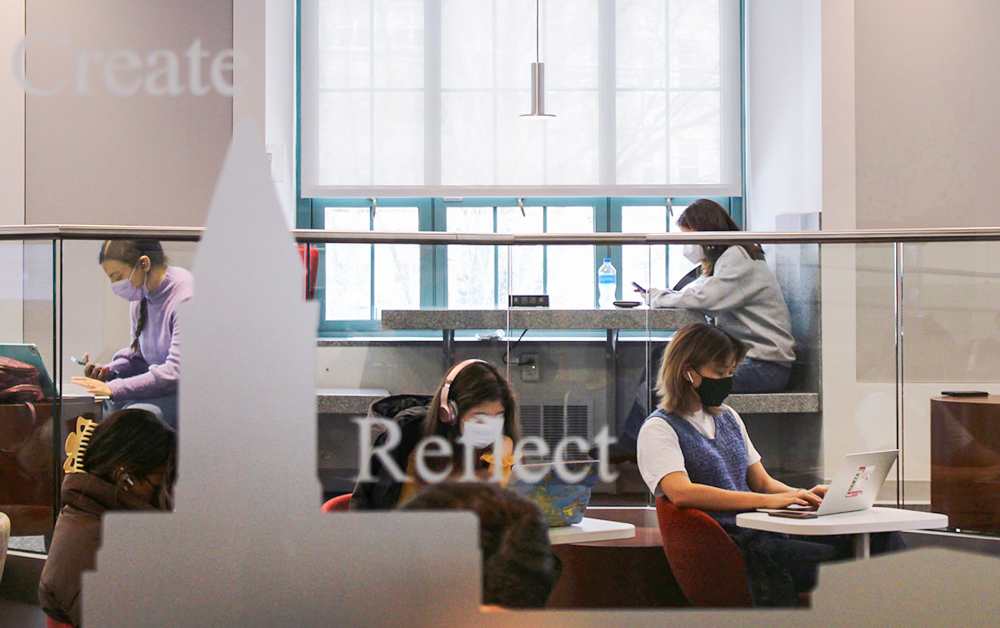
Students voiced concerns Tuesday night over a policy to be instituted in the fall requiring student groups to return all funds provided by the Boston University Allocations Board for philanthropic events.
“The change is basically asking for the money that was allocated from the Allocations Board toward philanthropic events to be returned before any proceeds from an event are donated to a charity,” said AB Chairwoman Anjali Taneja.
She said the AB looks to fund events that add to the student experience and that are a valuable use of undergraduate fees.
“The money allocated toward a charitable event to cover expenses will have to be returned to AB so that the returned money can be reallocated toward other events,” Taneja, a Sargent College of Health and Rehabilitation Sciences senior, said.
About 100 students from various student groups gathered in the Photonics Center to attend the town hall meeting. Assistant Dean of Students John Battaglino spoke to students about the AB’s new policy regarding philanthropic events for the fall 2013 semester.
“I’m not trying to discourage you from being philanthropic, but I’m trying to say that the money that goes into those endeavors, if it’s everybody’s money, we can’t give that to charities,” he told students during the meeting. “What we can do is give proceeds.”
Battaglino said the current policy allows student groups to make donations that indirectly include funds from the undergraduate student fee. The new policy will provide more money for student groups to host more philanthropic events.
“We don’t have enough money for everything that we want to do on campus,” he said.
Battaglino said student groups requested $2 million during the 2011-12 academic year, but only $600,000 was awarded.
Although they have discussed the change in policy with administration during the spring 2013 semester, Taneja said the AB did not know the changes in policy were definite for the coming fall semester.
“We were unaware that this policy will be implemented without any scope of compromise or alternative actions until tonight,” she said.
During the meeting, Katie Noel, a member of Alpha Delta Pi, asked Battaglino if the changes were definite. When he confirmed they were, several students left abruptly.
“Up until when I asked him if this decision was already made, he was trying to play the game like it wasn’t, and that we were actually making a difference,” Noel, a SAR senior, said after the meeting.
Battaglino said he wished students had known coming into the meeting that the change in policy was definite.
“Folks had this expectation that it’s up for debate,” he said.
Taneja said AB members are skeptical of the new policy because they feel there will be a decrease in student group activity.
“Going through all the organizational troubles to putting together an event just to be able to donate a minimal amount towards charity is not enough of a motivation for many organizations to put together the event,” she said after the meeting.
While Noel said she was satisfied with the open discourse in the meeting, she said she wished its purpose had been more clear.
She said she felt unrepresented as a member of a student group participating in philanthropic events.
“This will affect our organization because we won’t be able to donate as much money to charity, which is a huge part of our goal and what we want to do,” Noel said.
Grace Hannawi, president of the Lebanese Club, said she was concerned with the logistics of the plan and how it might affect organizations that do not hold charitable events.
“He [Battaglino] did not properly address a lot of the issues that were raised and it wasn’t a proper discussion,” Hannawi, a SAR senior, said. “It was more like one side was raising angry requests or angry questions, and he was not answering their questions.”
Jason Paik, who represented BU’s chapter of The Supply, a national nonprofit organization that advocates education for children overseas, said he believes the new policy will lead to a decrease in philanthropy at BU.
“The money that we raise within our events — it’s in our nature to give that,” Paik, a School of Management sophomore, said. “This policy really cuts down that type of student experience that we foster.”
After the meeting, the AB posted on the meeting’s Facebook page that it would consider points made by student leaders.
“We have taken note of everything that was brought up in conversation today and will work to represent those points in future conversations regarding policy change,” the post stated. “… We have gathered your input on this tonight at our meeting and will weigh it heavily while discussing policy changes.”






























































































































Shree • Sep 28, 2013 at 3:27 pm
This article was recently brought to my attention again — Glad you all covered the issue and had a chance to speak with Anjali. Just a quick note: the caption on the photo is currently incorrect. Anjali is correctly labelled, however I am unsure who the gentleman to the right of her is (it is not Yuzhao Wu). And the AB E-Board members sitting at the desk from L to R are Rohan Vaswani (then a Sophomore in CAS-AB Secretary) and Jake Magid (senior in CAS-AB Vice Chair). Just thought I’d share.
Erin • Mar 6, 2013 at 3:36 pm
Ben, I don’t think this realistically reflects how student groups currently use the funds. Although you imply that it is, school money is never, ever donated to a charity directly. There is already a strict policy that money can’t go directly to a charity, so this new policy doesn’t add any safeguards for that issue at all.
As a former president of a charitable student group, our profits came from the donations made from students, not from BU funds. Typically we used these funds to reserve a space for an event. Often times, BU itself charged us a fee to use their space to hold a fundraiser, so we would use money from the Allocations Board to rent this space. It’s already a bad system, since usually the money never leaves BU. This policy will not “give future students more funding for philanthropy,” as the new policy requires that philanthropy groups will now have to pay back ALL funds. It seems that all it really does it singles out philanthropy groups unfairly and provides them with less resources than if they were a social club without a strong explanation why.
Ben • Mar 6, 2013 at 12:11 pm
The new policy is great! Students need to learn the value of the seed money provided by the school and respect the school by giving the seed money back after the event. If the school money is donated too, it’s not a proper indication of the money raised and it is also not teaching students the proper way to run a proper philanthropic endeavor. Good job with this policy. It will encourage more efforts to make a charitable event profitable for the cause and give future students more funding for philanthropy.
Andrew K • Mar 6, 2013 at 11:46 am
I strongly urge everyone with strong views on this subject to email Boston Universities administration voicing your concerns. Email President Brown, Dean Elmore and Dean Battaglino. Nothing will change about this policy unless the student body speaks out and alumni reading this speak out.
My experience as a senior at Boston University has been a great one due in major cause to the events that these student groups take the time and effort to organize and put on for the BU Community. This policy will limit the amount of student programming that occurs whether or not anyone in the administration will admit it. It will reduce the number and quality of student run events next year and for years to come and through this it will limit our student groups ability to exist as the strong communities they are today. I see no other immediate result other then a decrease in the amount of strong community leaders which this school produces each year and an overall degradation of the student groups who donate their time and efforts to causes which they believe in and fun events which provide our students with positive safe experiences.
I think it’s a travesty that we have a state of the art incredibly expensive overkill building in 100 bay state and are in the midst of a 1 billion dollar campaign yet cannot find the money to continue to donate back into our student groups and allow them to function as they have been. The fact of the matter is that figure of 2 million dollars is an extremely skewed figure. 2 million dollars were requested by student groups but for things which allocations board decided not to fund. As a representative of AB said last night at the meeting they weren’t “real” requests. Allocations board is currently functioning at a surplus and has thousands of dollars remaining in their account. We need to encourage more student event programing not discourage it as this policy change would do.
Again, if you have any opinion please let it be heard. You are the students and alumni who’s money is being allocated so take a stand and let everyone involved know how you feel.